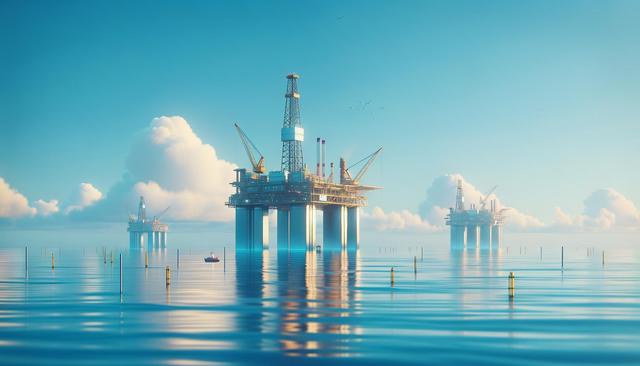Understanding What Offshore Jobs Involve
Offshore jobs typically refer to positions based on oil rigs, ships, or in remote international locations, especially in the energy, maritime, and construction sectors. These roles can range from engineering and technical maintenance to catering and safety operations. While many offshore jobs are associated with oil and gas platforms, the field also includes renewable energy installations, like offshore wind farms, and positions on commercial vessels.
Working offshore requires a strong commitment to long shifts, often in isolated environments. Employees may work several weeks at sea followed by an extended break onshore. This rotation system can appeal to those who appreciate concentrated work periods followed by significant downtime.
Key industries offering offshore jobs include:
- Oil and gas exploration and production
- Marine transportation
- Subsea engineering and construction
- Offshore wind and renewable energy
These roles often require specialized training and certifications, making them ideal for professionals with experience in mechanical, electrical, or safety disciplines.
Benefits and Challenges of Offshore Employment
Offshore jobs come with a distinct set of advantages and hurdles. One of the most appealing aspects is the earning potential. Due to the demanding nature of the work and the remote locations, these positions often provide competitive salaries and benefits. Additionally, many companies offer perks such as paid travel, meals, and accommodations while on duty.
However, life offshore can be challenging. Workers must adapt to:
- Long hours and extended periods away from home
- Limited access to communication and entertainment
- Living in confined quarters with crew members
- Strict safety and operational guidelines
Despite these challenges, many professionals find offshore work rewarding because of the opportunity to save money, travel, and gain unique skills that are highly valued across industries.
Common Roles and Qualifications Required
The range of offshore jobs is broad, covering both skilled and entry-level positions. Common roles include:
- Drilling Engineers and Technicians
- Marine Electricians
- Safety Officers
- Chefs and Hospitality Staff
- Divers and ROV (Remotely Operated Vehicle) Operators
Most positions require relevant technical qualifications, offshore safety training (such as BOSIET), and medical fitness certification. For example, a mechanical technician may need a vocational certificate and experience in industrial plant maintenance, whereas a chef might need hospitality training and experience in high-volume catering.
Employers typically look for candidates who demonstrate resilience, teamwork, and willingness to adapt to a dynamic work environment. Job seekers interested in offshore roles should consider investing in industry-specific certifications and gaining experience in related onshore industries first.
How to Find Offshore Job Opportunities
Finding offshore jobs involves understanding the hiring process and knowing where to look. Many companies in the energy and maritime sectors recruit through specialized staffing agencies or job boards that focus on offshore and remote work. Networking can also play a crucial role, especially for those with previous experience or industry connections.
Strategies to find offshore jobs include:
- Creating a profile on offshore-specific career websites
- Attending industry events and trade shows
- Connecting with offshore recruitment agencies
- Monitoring the careers pages of major energy and maritime companies
Additionally, candidates should ensure their CV highlights relevant training, certifications, and experience. A well-prepared resume can make a strong impression during the screening process, especially in a competitive job market.
It’s also important to stay updated on global markets. Changes in energy prices, environmental policies, and geopolitical developments can influence offshore hiring trends.
Living and Working Offshore: What to Expect
Life offshore is unique and often described as a mix of routine, discipline, and camaraderie. Workers typically stay on a platform or vessel for two to four weeks, followed by an equal or longer period off. During shifts, workdays can stretch up to 12 hours, with strict schedules and safety protocols in place.
Facilities offshore are designed to support long-term stays, including sleeping quarters, cafeterias, gyms, and recreational areas. While the environment may be isolated, many workers enjoy the structured lifestyle, strong team bonds, and financial incentives.
Preparation is key to adapting to offshore life. Workers should:
- Bring enough personal items for comfort and convenience
- Stay physically fit and mentally resilient
- Follow all safety and communication protocols
- Respect cultural and professional diversity on board
Overall, offshore jobs offer a unique lifestyle that blends professional growth with personal development. While not for everyone, those who thrive in such environments often build lasting careers with significant rewards.
Conclusion: Is an Offshore Career Right for You?
Offshore jobs open doors to global experiences, specialized skills, and competitive compensation. Whether you’re a seasoned technician, a maritime professional, or someone seeking a new direction, the offshore industry presents diverse opportunities. However, it’s essential to weigh the lifestyle, physical demands, and long work cycles involved.
For individuals who value structure, are open to adventure, and are ready to meet the challenges of working in remote environments, offshore employment can be a rewarding and sustainable career path. Taking the time to understand the requirements, invest in training, and explore potential employers will provide a solid foundation for success in this dynamic field.


